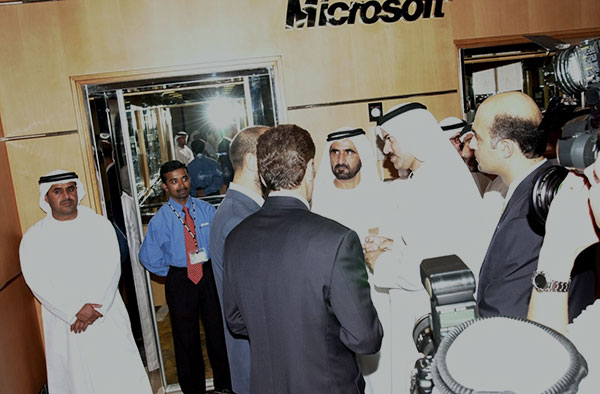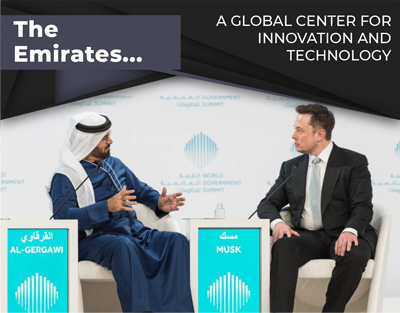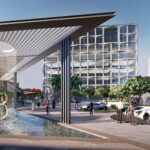Dubai is a global economic hub with a unique success story based on extraordinary, futuristic projects.
His Highness Sheikh Mohammed bin Rashid Al Maktoum has spearheaded the launch of a number of comprehensive strategic and development initiatives and projects that have transformed Dubai into a worldwide economic hub. Since assuming the post of Crown Prince in the Emirate of Dubai in 1995, he has strengthened its position on the economic business map and made it a bridge between East and West in several sectors. These developments contributed to elevating Dubai to the status of a world-class city, transforming it into a worldwide economic hub that ranks first in several global competitiveness measures. His Highness ascribed to…, who accompanied him since the mid-1990s, the development of a number of these projects that created Dubai’s grand launch towards the globe at the start of the 21st century and focused on the direction of the cluster economy. Each project was envisioned as a commercial complex comprised of a network of businesses, organizations, and centers, as well as the integration of research and service providers in relevant areas to give an integrated experience for stakeholders and investors.
Below are the five most prominent of these projects:
Dubai Internet City (The Silicon Valley of the Middle East)
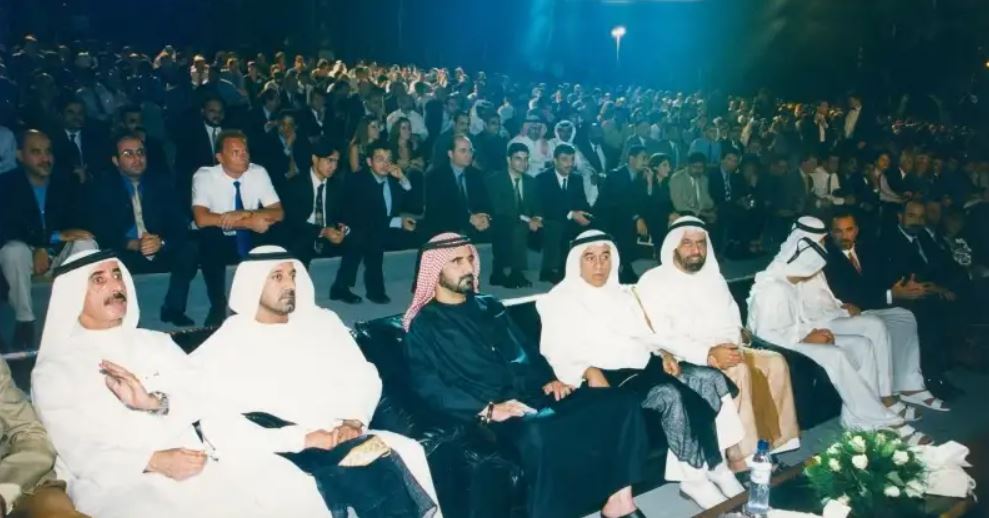
Mohammed bin Rashid attends the inauguration of Dubai Internet City in October 2000
Given the fact that the Internet was still in its inception, His Highness Sheikh Mohammed bin Rashid Al Maktoum had a strong desire for the UAE to be one of the first countries to dominate the region’s technological industry. On October 29, 1999, he announced the commencement of the Dubai Internet City project at a news conference. His Highness launched Dubai Internet City 364 days later, on the same date and location as the project’s introduction, establishing a new and qualitative sector in the UAE economy based on information and technology. In a press conference, His Highness stated: “I am sure that the UAE will play an influential global role in businesses and the e-commerce world. Countries’ leadership in the future will be based on their adoption of information technologies and creative ideas and services, not their dependence on natural resources alone. Our time is currently seeing the Internet revolution… The central nervous system of the emerging global economy.”
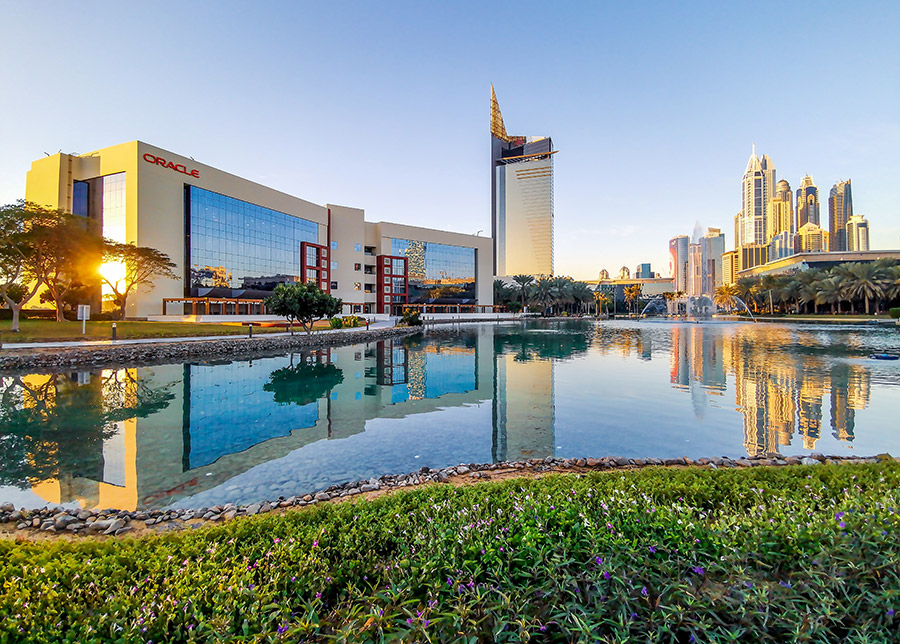
In response to His Highness’s message, Dubai Internet City was founded as a free economic zone and a strategic base for enterprises targeting emerging markets, with the goal of transforming Dubai into the regional capital of the digital economy and a hub for business and finance. At the time of the city’s debut, more than a hundred information technology businesses, including Microsoft, Oracle Systems, MasterCard, and Compaq, had received licenses to make Dubai Internet City the hub of their operations in the Middle East.
Dubai Internet City, a part of the TECOM Group, has experienced a considerable expansion in recent years and now houses over 1,600 technology enterprises and 32,000 professionals. Furthermore, the city drew 60% of the Fortune 500 corporations in the world. The city became the Silicon Valley of the Middle East, especially after a series of billion-dollar deals to buy a number of companies founded in Dubai, such as Careem, which was sold to Uber for 11 billion dirhams, and Souq.com. Com”, whose acquisition deal from Amazon was worth more than two billion dirhams, and most recently the “Media.net” deal, which was worth 3.3 billion dirhams.
While Dubai Internet City saw the realization of one visionary leader’s idea 15 years ago, it now sees the realization of the dreams of tens of thousands of creators, inventors, pioneers, and change-makers every day.
Dubai Media City
How has a city with one television station become a regional and global media center? The explanation begins with His Highness Sheikh Mohammed bin Rashid Al Maktoum’s vision of establishing Dubai as the regional media hub 20 years ago when other nations such as Egypt and Lebanon were at the lead in this field. Under His Highnesses’ directives, the city was founded in 2000 as a free zone devoted to media activities, alongside Dubai Internet City, because His Highness recognized that the technology sector and the media sector will merge and become essential partners in building the Emirate of Dubai’s business wheel. Since its inception, the city has attracted a number of regional and worldwide media institutions, with the MBC channel group being one of the first to relocate its whole operation from its London headquarters to Dubai Media City.
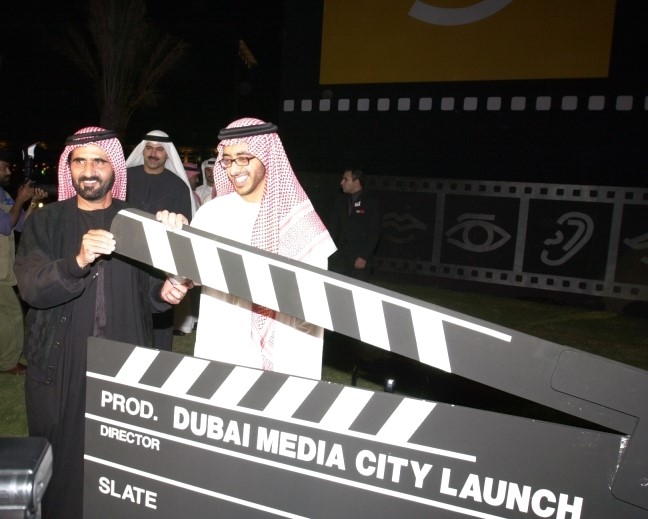
Mohammad bin Rashid, Abdullah bin Zayed and Mohammad Al Gergawi during the opening of Dubai Media City in 2001
Dubai Media City was able to become one of the best media centers in the world in a short period of time, due to the climate and environment it provides for media institutions functioning there. Today, it is comprised of over 4,000 businesses and 33,000 media professionals. It is also the regional headquarters of numerous international news agencies and television networks, such as Thomson Reuters International, Agence France-Presse (AFP), The Associated Press, and Bloomberg as well as hundreds of satellites and radio broadcasting networks, and various media services.
Dubai Healthcare City
Dubai Healthcare City was established in 2002 under the directives of the Ruler of Dubai with the goal of transforming Dubai into a world-class center in the healthcare sector as well as a center for health sciences education and research. The first phase of the project covered an area of 500,000 square feet, and it was designed to cover a total of 5 million square feet when completed.

Mohammed bin Rashid briefed on the designs of the Dubai HealthCare City project
Under the supervision of its then-chairman, the Dubai Investment and Development Authority implemented the first phase of the project, which aims to support the strategic and development goals of the emirate in diversifying the national economy as well as plans and strategies related to the new economy, at a total cost of $1.8 billion.
His Highness launched the second phase of the project in 2015, spanning 22 million square feet along the Dubai Creek and emphasizing health and well-being.
The Mohammed bin Rashid Academic Medical Complex and Al Jalila Foundation, as well as a number of hospitals, including Dubai Hospital, Rashid Hospital, Al Jalila Children’s Specialist Hospital, Emirates Specialist Hospital, and Mediclinic City Hospital, are among the city’s most prominent medical and health institutions and research centers.
The Dubai Healthcare City project contributes to Dubai’s status as a leading destination for medical tourism; in 2018, it attracted $1.5 billion in foreign investments in the health industry.
Dubai International Financial Center
Waiting was never an option for us, not in the past nor in the present, and we strive and endeavor to predict and prepare for future trends. We do not create initiatives on the fly, and to reassure everyone, we thoroughly researched the project and assembled a team of the brightest young people to investigate all local, regional, and worldwide influences.” In a press conference held in 2002, Sheikh Mohammed bin Rashid announced the commencement of the Dubai Financial Center project. The project’s goal was to boost the emirate’s place on the global economic and financial map and to establish it as a major financial services hub connecting East and West.

Since its establishment, DIFC has achieved sustainable growth and a prominent worldwide position, as it is home to more than 24,000 specialized personnel working in more than 3,644 registered companies, with an annual growth rate of 14 %, including more than 671 financial sector entities. The market for wealth and asset management in the Dubai International Financial Center is presently estimated at $424 billion, which is comparable to around 30 % of the GCC nations’ total GDP. In 2021, DIFC also recorded its highest-ever annual revenue and operating profit.
In 2019, Dubai placed eighth among the most significant financial centers in the world, according to the Global Financial Centers Index, as the Dubai International Financial Center rose in the index of more than 100 centers.
Dubai Holding
Dubai Holding, the investment arm of the Government of Dubai, was established in 2004 with a $200 million loan from HSBC in order to manage a group of major and vital projects in Dubai that were launched in 1999 and later. This was done in order to support the Government of Dubai’s long-term vision of building a sustainable economy.
The objective of the company, which Mohammad Al Gergawi led from 2004 to 2017 and which His Highness Sheikh Ahmed bin Saeed Al Maktoum has chaired since June 2020, was to transform Dubai into a global business and tourism hub. The projects that have been taken on by the new organization since its establishment have been announced: Dubai Internet City, Dubai Media City, Dubai Healthcare City, Jumeirah Beach Residence Project, Dubai land Project, Dubai City for Humanitarian Services, Dubai Knowledge Village, Arabian Radio Network (ARN), B I Hosting for electronic hosting services, Dubai Outsource City, Emirates Central Cooling Systems Corporation (Empower), Smacom Technology, and a number of other businesses are regarded as semi-governmental companies.

Mohammed bin Rashid attends Mohammed Al Gergawi’s presentation of a Dubai Holding Company project design
Dubai Holding has contributed to the addition of new sectors, the development of business parks, and the diversification of Dubai’s economy, therefore enhancing the position of the emirate on the global economic map. Since its establishment, the organization has launched several initiatives, businesses, and high-quality projects in a variety of areas, including finance, real estate development, tourism, health, education, technology and media, research, biotechnology, and industrial production.
The projects in the portfolio of Dubai Holding, which has a significant presence in 12 sectors, have evolved into a group of international companies, including Jumeirah Group, Dubai Properties, TECOM Group, which comprises 10 specialized economic complexes, Dubai Asset Management, Dubai Retail, and The Arab Media Group (AMG).
Today, the company has assets of over 130 billion dirhams with administrative offices and activities in 21 countries.
